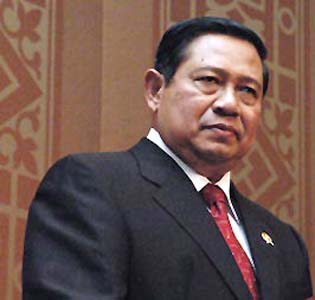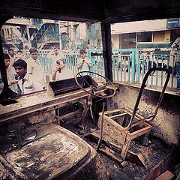Special to ASSIST News Service
GLASGOW, UK (ANS) -- Sheraz Khan, the chief Executive of Global Minorities Alliance (GMA), a Glasgow based minority rights group, while congratulating Pakistan PML (N) party's victory in the general election 2013 has demanded the the party's chief, Mr. Muhammad Nawaz Sharif, to "protect and safeguard the rights of all religious, ethnic, cultural, and linguistic minorities of Pakistan."
 |
Former Pakistani PM Muhammad Nawaz Sharif is seen celebrating with his supporters, amid early signs that his party will be the largest after parliamentary elections (Photo: BBC)
|
According to unofficial result at the time of writing, the Mr. Sharif led PML (N) grabbed 124 of total 272 seats (45.5%) of National Assembly, the lower house of Pakistan parliament. Mr. Sharif needs 137 National Assembly seats to form a government on his own.
Cricketer-turned-politician Imran Khan's Pakistan Tehreek-e-Insaf has emerged as the second biggest party in the elections securing 35 seats. The official results will be announced by the Election Commission of Pakistan.
In his victory speech from the balcony of his residence in Lahore, the eastern city of Pakistan, on Saturday evening although Mr. Sharif expressed his willingness to take all parties on board but stopped short from crediting minority voters' contribution towards his party's Muslim candidate success.
According to the official statistics, there are 2.77 million non-Muslim voters in the country, and 13 districts in Sindh and two in Punjab have significant presence of these voters.
In a predominantly Muslim Pakistan, minority candidates are elected under Proportional Representation System, but minority voters cast votes for Muslim candidates running for national as well as provincial constituencies.
Expressing his profound concern over growing religious intolerance in Pakistan, Mr. Khan said he hoped Mr. Sharif would take measures to "scale back" extremism if not "completely reverse the rise in fundamentalism."
The Pakistan province of Punjab is the stronghold of the Sharif-led PML-N.
 |
Sheraz Khan
|
"In 2009/10 the province of Punjab saw a 34% of increase in terrorist attacks and a 26% increase in terrorist- related killings," said Mr. Khan, quoting statistics from the Pakistan Institute of Peace studies, based in Islamabad.
Mr. Khan, who was born in Pakistan and now lives in Glasgow, was critical of incidents of violence and terrorist attacks during the election campaign and the killing of 34 people on the Election Day.
The Pakistan Peoples' Party, Muttahida Qaumi Movement and Awami National Party which are thought to be liberal [tolerant] and progressive parties, abstained from holding public meetings for the fear of being attacked by pro-Taliban elements.
Mr. Khan urged the successful minority candidates in the elections to actively advance minority's interest instead of towing their respective parties' line.
He demanded that Mr. Sharif restore the ministry of Minorities Affairs which was transformed into Ministry of National Harmony which was established on July 29, 2011.
Shahbaz Bhatti, the only Federal Minister for minorities' affairs, and the only Christian in the cabinet, was gunned down on March 2, 2011.
Khan said that in a complete and utter disregard for minorities' due representation in the ministry, the previous government of Pakistan People's Party installed Shahzada Jamal Nazir as Federal Minister, a Muslim and appointed Akram Masih Gill as a junior Minister.
 |
Asia Bibi
|
The GMA chief Executive called upon Mr. Sharif to ensure equal opportunities for members of minority communities.
He stated: "We would like to see an end to discrimination against minorities in public and private sectors."
Mr. Khan said he hoped Mr. Sharif's new government would take steps aimed at stopping the "misuse" of Pakistan blasphemy laws.
"We are deeply concerned about the safety of Asia Bibi, a mother-of-five who is being kept in solitary confinement on death row for blasphemy," he said.







